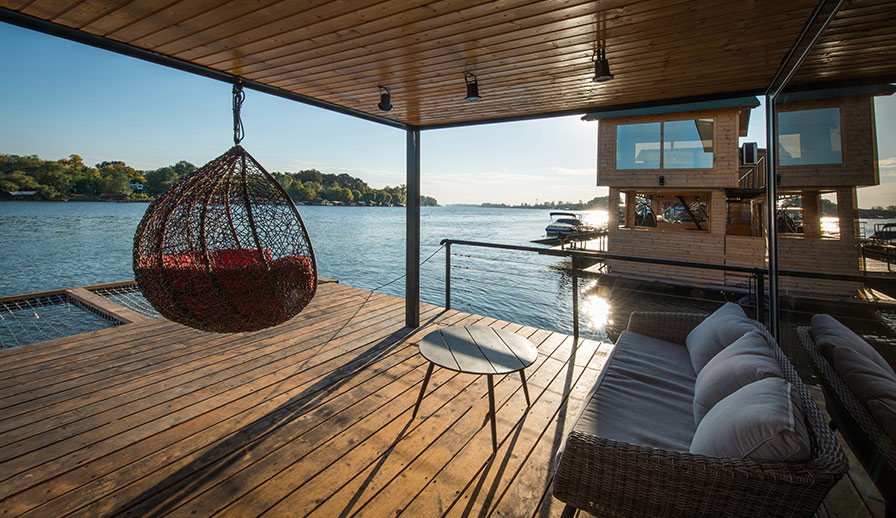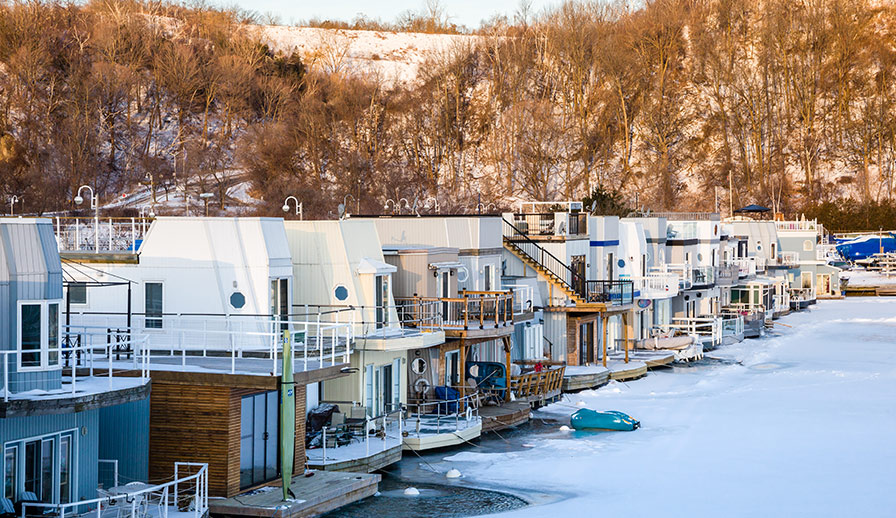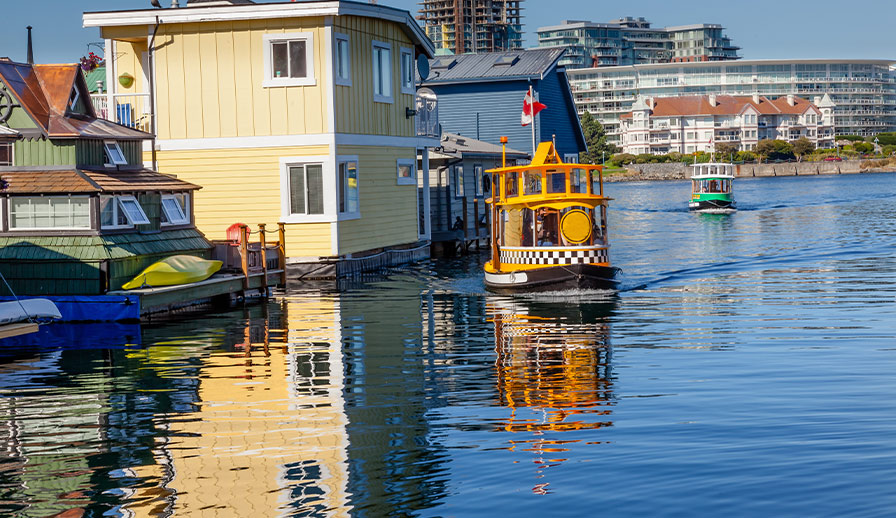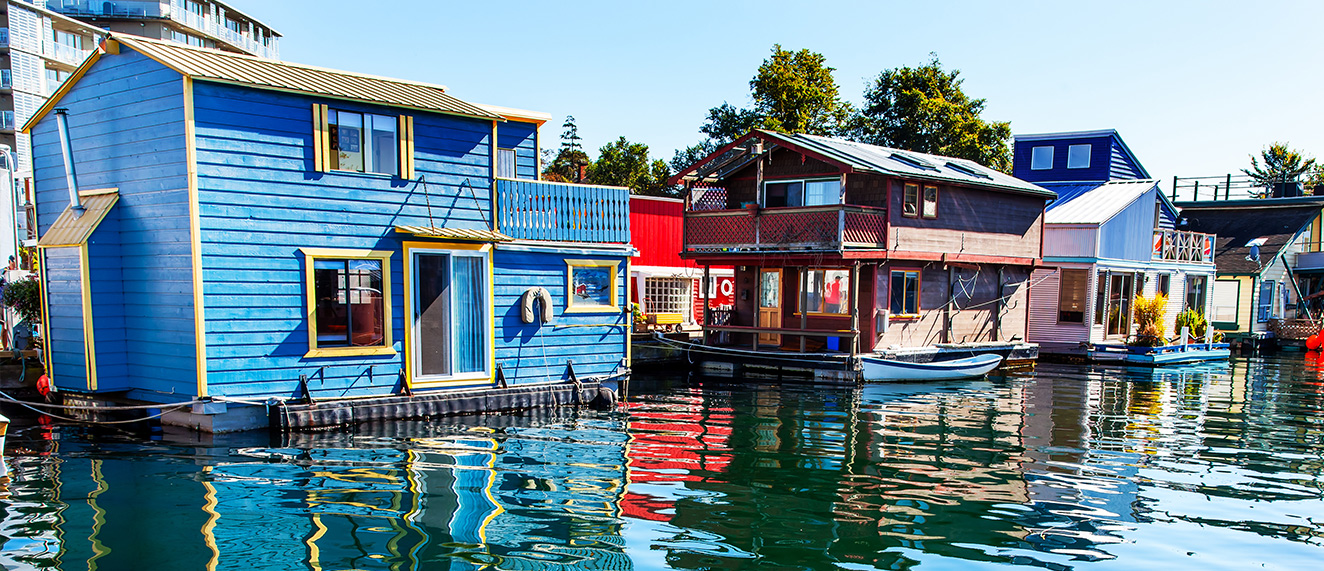Struggling to find content to share on your social media pages?
Stop scrolling through Instagram and Facebook. All you need is REALTOR.ca.
Our consumer lifestyle blog, Living Room, offers content including home improvement, market trends, DIY projects, neighbourhood guides and profiles on unique homes. Living Room publishes exciting new content four times a week (with unique French content for our Francophone fans).
While CREA Café is curated specifically to help your business grow and thrive, Living Room content is perfect to share with your clients.
Owned and operated by the Canadian Real Estate Association (CREA), REALTOR.ca is the No. 1 real estate platform in Canada (Comscore, 2020) with MLS® System listings from across the country.
Share this blog with your clients and followers with the Facebook button below!
You can also follow REALTOR.ca on Twitter, Instagram and Pinterest.
You can read the original blog here.

There’s always been a romance about the water. From classic tales of the high seas to memories of quiet early mornings spent fishing with your parents, the water holds a special place in our collective experience.
In fact, it’s so special for some people they’ve taken the plunge and decided to live on the water full time.
Floating homes offer an alternative way of life. Today, we’ll explore why, delve into some specifics, and help you decide whether the move might be right for you.
Exactly what it sounds like
When we talk about floating homes, we’re talking about residences constructed on top of a floating barge. Floating homes are not houseboats. They do not have motors and cannot move about on water.
A floating house is just that: a house that floats. Most floating homes are attached to a deck and connected to the land and public utilities. So, while you get to enjoy the sounds of the lapping water, you’re never far from the amenities you’re accustomed to.
Then you have communities like Mahone Bay in Nova Scotia, with stationary homes floating in the middle of the water on top of pontoons. The homes do not move and you will need a boat or canoe to reach them.
They’re beautiful
Floating houses are made of the same materials that regular houses are—insulation, drywall, the works—and are designed with modern sensibilities in mind. In fact, to look at the interiors of many of them, you’d be forgiven for thinking they belonged to an updated cabin or a new-age condo.
We took a dive into floating homes a few years ago and found some of the world’s most striking examples.

Floating home communities
Stephen Foster is a Victoria, B.C. REALTOR® and salesperson who specializes in digitally marketing his residential listings. Having sold his fair share of floating homes, he doesn’t hesitate when asked what sets them apart. “When you move into a floating home, you immediately become part of a special and inclusive community.”
This is the opposite of condo living, he says, where anonymity is the norm. Foster stops short of using the word “family”, but the message is clear: floating home communities are examples of true neighbourliness, where everyone looks out for everyone else.
In Canada, mention floating homes to anyone in the know, and chances are they’ll bring up Vancouver or Scarborough’s Bluffer’s Park.
Vancouver, Victoria, and Vancouver Island are all choice places to live—in any kind of house. Add to the equation the fact that—due to being hemmed in by the mountains and the U.S. border—land is at a premium, and it’s not hard to understand why there are plenty of floating home communities in these areas. You’ll find tons of floating homes peppered along the ocean, Fraser River coastlines, Fisherman’s Wharf, Coal Harbour, Granville Island, Stevenson, and Delta to name a few.
In Ontario, the prize goes to Bluffer’s Park, where a row of 24 floating homes make the marina not just a coveted address but a bit of a tourist destination, too.
Bonus: A little farther from home, but still with that Canadian flavour, is this half-Canadian-half-Dutch floating mansion in Amsterdam.
Maintaining a floating house
Just like any house on land, you need an inspection before taking the plunge into floating home ownership. However, unlike a regular house, you’ll need to hire a diver to inspect the floats beneath your home. The home will have to meet building standards and codes, too. It’s not just a free for all on the water!
Maintenance of your home will generally be the same. After all, it’s a “regular” home that’s floating on concrete or pontoons. There’s no motor or mechanical system like on a houseboat, so no additional maintenance is needed there. There are some different aspects to floating house maintenance, like having to empty your sewage tank every couple of months, but on the flip side you don’t have to mow the lawn. It’s a give and take.

Now, about the prices…
If you are considering life in a floating home, it’s important to know what you’re getting into. With those calming waves and scenic views come some unexpected things.
- Moorage fees
- These vary between municipalities and marinas, but you can expect to pay somewhere between $600 and $1,500 a month for the right to tie up; exactly what you’ll be charged is based on the square footage of your home’s footprint.
- Property tax
- Just because you aren’t on a city street doesn’t mean you get away from taxes; most floating homes will cost you about $1,000 a year in property taxes.
- Septic services
- Right, almost forgot about these; if you don’t have a connection to the sewage system, you’ll have to fork over about $40 every month or two for septic services.
- Potentially higher mortgage rates
- Until floating homes lose the “alternative” label, many banks might be hesitant to finance what is, in effect, a watercraft; take this into account when budgeting for your floating home.
- Different power capacities
- Different marinas offer different amperages, but it’s really no big deal; there’s always propane to supplement your energy needs.
Is a floating home right for you?
There are nuances to buying non-traditional properties a REALTOR® and real estate lawyer can help you understand.
If you love the water and live in an expensive city like Vancouver or Toronto (where the average price of a home continues to rise), a floating home can make a lot of sense. You just need to price things out and make sure you’re ready for what you’re getting yourself into.
Worried about your sea legs? There are always places like Oakville’s Bronte Harbour to satisfy your hydrophilia. But if just being close isn’t close enough, reach out to a REALTOR® to help you find the floating home of your future.
As Foster says, living in a house is living in a house, but living on a boat is an experience.
The article above is for information purposes and is not legal advice or a substitute for legal counsel.





